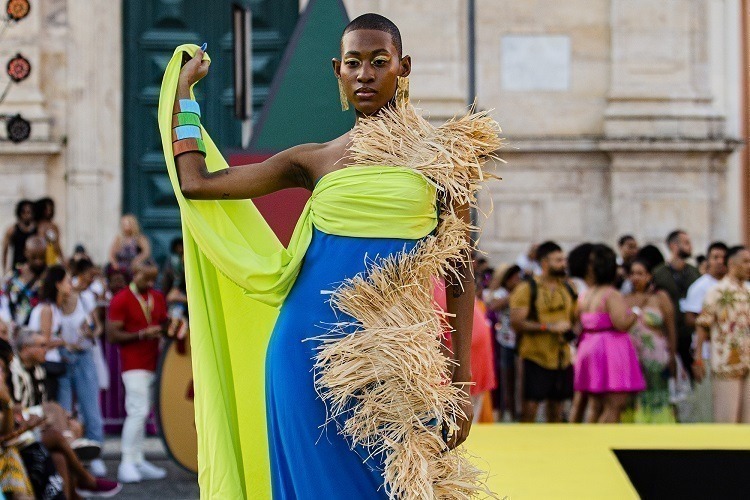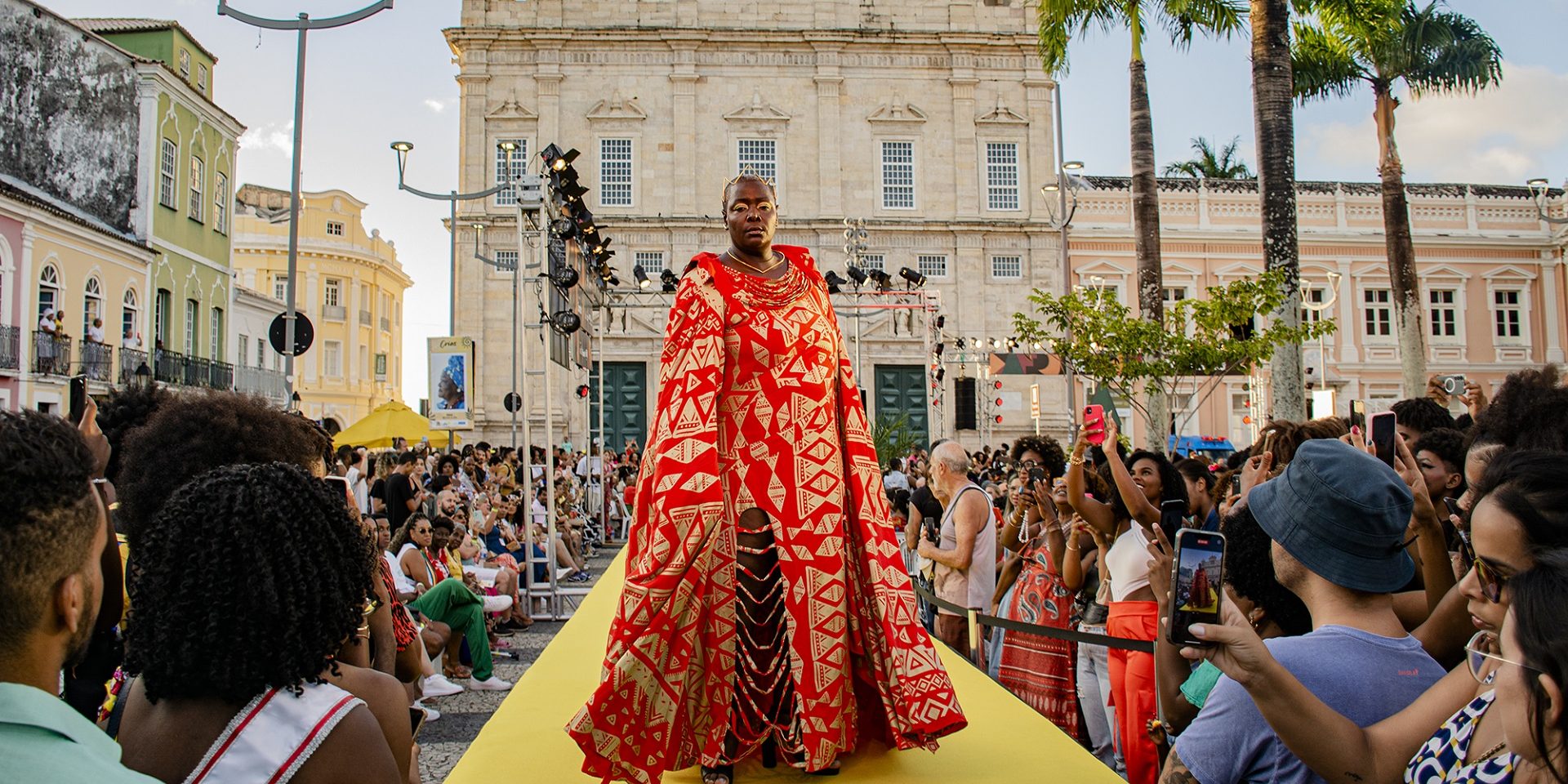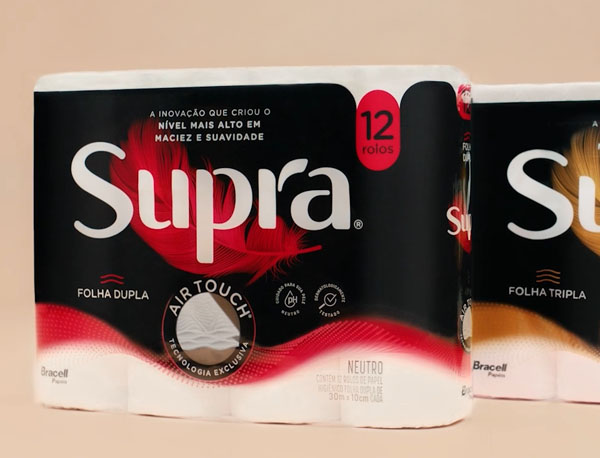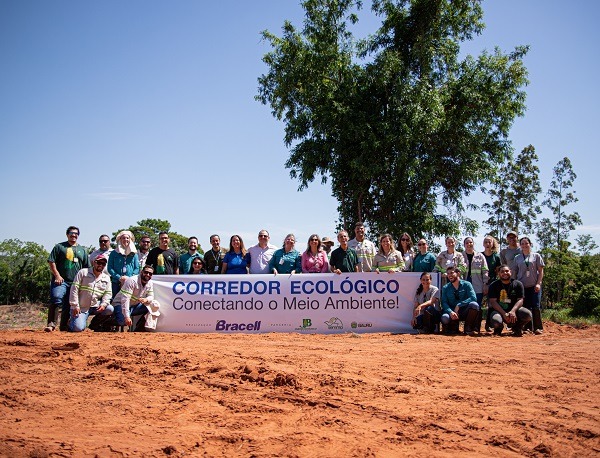According to Cíntia Liberato, the company’s communications manager, Afro Fashion Day is a celebration of black entrepreneurship in the creative industry and Bracell is proud to be a partner
Afro Fashion Day (AFD) reached its ninth edition on November 25th and established itself as one of the most representative fashion events in Brazil. Considered the largest black runway in the country, the catwalk once again had Terreiro de Jesus, in the Historic Center of Salvador, as its scenario. This year, the theme was “Mother Africa”, divided into three blocks: Royalty, Ethnicity and Futurism.
The event was both a valuable opportunity for local designers and models to showcase their talent and for companies like Bracell to get closer to the general public, including consolidating itself as a supplier for the fashion segment. The company was one of the sponsors of the Afro Fashion Day and took the opportunity to also distribute to guests viscose scarves sewn by participants in the one of the company’s corporate social responsibility projects. “It is a pleasure and a privilege to be able to participate in such a beautiful and grand event about Afro entrepreneurship. We are very proud to be part of this moment”, highlights Bracell’s Communications Manager, Cíntia Liberato.
Once again, designers Fagner Bispo and Filipe Dias were responsible for the creative direction of the pieces created for the brands. With the presence of Brazilians rising artists, such as singer Majur, choreographer Zebrinha and MC Áurea Semiseria, more than 70 models – 16 of which were chosen in local auditions – paraded looks made up of clothes and accessories from more than 40 companies. The atmosphere was one of great expectation for those watching and the models stole the show with elegance, beauty and ancestry. With each entry onto the catwalk, shouting, praise and words of encouragement could be heard. Cameras everywhere and attentive eyes that didn’t miss a single look.

November: black awareness month in Brazil
November is especially important for black people in Brazil. On the 20th of this month, the country celebrates Black Awareness Day, an opportunity to honor the influence of this heritage. Just a few days after this important date, on the 25th, Bahian model Maiana Amorim started her fashion show on the catwalk in Salvador, a city with over 80% of its population made up of black people. She captivated around 7,500 watchers a blue and green viscose dress – exactly Bracell’s colors. This was a strategic choice, since the company produces dissolving pulp, the main raw material used to manufacture viscose, in Bahia, a state whose capital is Salvador.
Despite being a synthetic fabric, viscose has a natural origin (eucalyptus wood). it is characterized by its softness, luster, freshness and perfect fit. The piece worn by Mariana was developed by Bispo and Dias. “We designed a long dress that spoke to the royalty reference and incorporated the brand’s colors. The look was complemented with a straw accessory reminiscent of wood, emphasizing sustainability, one of the company’s pillars,” says Bispo. “The creative process for the look took place through research and references about the origin of viscose”, adds Dias.
Partnership with Bracell for sustainability
In recent years, sustainability concepts have become increasingly present on the runways of fashion shows around the world and Afro Fashion Day was no different. In this edition, it was up to Bracell, a leading company in the production of dissolving pulp, to encapsulate this concept, through a look made of viscose. The company produces the raw material that generates the fabric through the processing of eucalyptus trees grown sustainably in around 38 municipalities in Bahia. Thus, viscose is a biodegradable natural fiber that can be used in various everyday items, such as clothing.
In fashion, the fabric is highly versatile and lightweight, being used to produce clothes with a soft, elegant fit. Its fluid nature gives graceful movement to the pieces, providing a delicate and comfortable touch. “As viscose is produced with a renewable raw material, we thought it was important to bring the company to represent this sustainability proposal”, says Bispo.
Annually, Bracell produces 500 thousand tons of dissolving pulp, 110 thousand of which are destined for fiber production in China. The mill is located in the Camaçari Industrial Complex, in the Metropolitan Region of Salvador, where the raw material is destined for the viscose industry and other products, such as medicines, cosmetics, computer screens, food, tires and many others.



